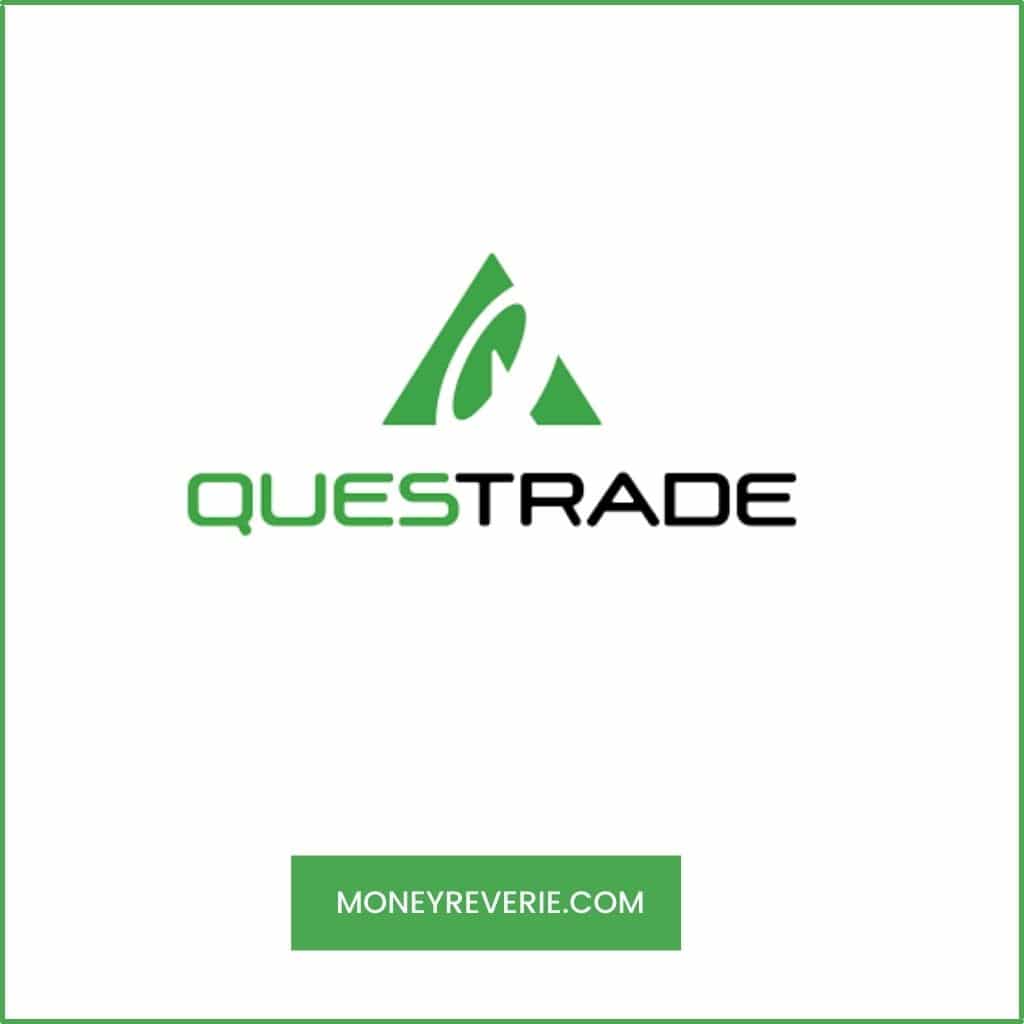Are you on the hunt for the best index funds in Canada? Well, you’re in luck because I have some exciting information to share.
As someone who used to think stock picking was the only way to invest, discovering the benefits of index investing was a game-changer for me. And if you’re new to the world of investing or just looking for a more passive strategy, this is the perfect place to start.
In this article, we’ll be exploring what index investing is, why it’s a great option for Canadian investors, and, most importantly, which funds are the best of the best.
So, get ready to learn about the best index funds in Canada and how they can help you reach your financial goals!
The 8 Best Index Funds in Canada
With plenty of index funds to choose from, choosing the best one can be difficult with their varying performance records and management fees.
But worry no more. I have researched and analyzed numerous funds to provide you with a comprehensive list of the eight best options.
Here are the best index funds in Canada for diversified and growth portfolios:
1. Vanguard FTSE Canada All Cap Index ETF (VCN)
- Inception Date: August 2nd, 2013
- Management Expense Ratio (MER): 0.05%
- Ticker Symbol: VCN.TO
- Assets Under Management: $5.19 billion
- Dividend Yield: 3.16%
- Dividend Frequency: Quarterly
The Vanguard FTSE Canada All Cap Index ETF (VCN) is an index ETF that provides broad exposure to different types of Canadian stocks.
It replicates the FTSE Canada All Cap Domestic Index and holds small, medium, and large-cap Canadian stocks.
VCN has a low MER of 0.05% and pays a high dividend yield, making it an attractive investment option. Additionally, investors can gain diversified exposure to different sectors with a 32.9% portfolio allocation to the financial sector and a 17.6% allocation to energy.
Since its inception, VCN has earned a return of 8.32% and pays a dividend of $0.32 a share, making it a potentially lucrative investment opportunity compared to traditional savings accounts.
2. BMO S&P/TSX Capped Composite Index (ZCN)
- Inception Date: May 29, 2009
- Management Expense Ratio (MER): 0.06%
- Ticker Symbol: ZCN.TO
- Assets Under Management: $7.15 billion
- Dividend Yield: 3.23%
- Dividend Frequency: Quarterly
BMO S&P/TSX Capped Composite Index (ZCN) is an index ETF that tracks the S&P/TSX index, providing exposure to 237 Canadian stocks, including blue-chip and smaller-cap companies.
With an MER of just 0.06% and a quarterly dividend yield of 3.23%, it’s a cost-effective way to invest in the Canadian market. It has identical management expense ratios and holdings but slightly fewer assets under management.
The sector weightings in the fund largely align with the broader market, with financials, energy, industrials, and basic materials dominating portfolio holdings. The top 10 holdings include several big banks such as Royal Bank of Canada, Toronto-Dominion Bank, Bank of Nova Scotia, and Bank of Montreal.
This index ETF is an excellent option for beginners and professionals seeking a stable investment for a buy-and-hold strategy.
3. iShares Core S&P/TSX Capped Composite Index ETF (XIC)
- Inception Date: February 16th, 2001
- Management Expense Ratio (MER): 0.06%
- Ticker Symbol: XIC.TO
- Assets Under Management: $9.39 billion
- Dividend Yield: 2.81%
- Dividend Frequency: Quarterly
The iShares Core S&P/TSX Capped Composite Index Fund (XIC) is a Blackrock iShares index fund that tracks the S&P/TSX Capped Composite Index, net of expenses, providing exposure to over 1,500 stocks listed on the Toronto Stock Exchange.
It has a similar composition and MER (0.06%) to ZCN, but ZCN pays out a higher dividend yield.
The Canadian economy is relatively diversified between financial services, energy, commodities, and technology. The XIC ETF tends to be heavily exposed to energy and finance, contributing to 46.8% of the portfolio, which is ideal for dividend income.
The top holdings of XIC include the Royal Bank of Canada, Enbridge, and Toronto Dominion Bank. XIC is an excellent option for investors who are bullish on the Canadian economy and want exposure to the stability of the banking sector and the long-term demand for energy.
4. Horizons Europe 50 Index ETF (HXX)
- Inception Date: December 6th, 2016
- Management Expense Ratio (MER): 0.19%
- Ticker Symbol: HXX.TO
- Assets Under Management: $90 million
- Dividend Yield: N/A
- Dividend Frequency: N/A
The Horizons Europe 50 Index (HXX) is an index ETF that tracks the 50 largest companies in the Eurozone and is geographically focused on Europe.
HXX holds stocks from nine different countries, including France, Germany, and the Netherlands.
The HXX ETF has a higher MER than other index funds and doesn’t pay dividends. Also, it is not currency-hedged. Currency fluctuations between the Canadian dollar and foreign currencies will impact your total return.
However, the ETF is a good option for investors looking to invest specifically in the Eurozone.
It is important to note that the Eurozone has historically underperformed North American markets. Diversifying with other index funds is recommended due to the limited holdings.
5. iShares Core S&P U.S. Total Market Index ETF (XUU)
- Inception Date: February 10, 2015
- Management Expense Ratio (MER): 0.08%
- Ticker Symbol: XUU.TO
- Assets Under Management: $2.25 billion
- Dividend Yield: 2.12%
- Dividend Frequency: Quarterly
The iShares Core S&P U.S. Total Market Index ETF (XUU) is a Blackrock iShares index ETF that seeks to track the S&P Total Market Index, net of expenses.
This ETF invests in a basket of other iShares ETFs listed in the US, allowing it to have a low MER of 0.08% and making it a good long-term core holding.
It has an affordable entry price of around $40 per share, making it more accessible to investors than similar index funds.
XUU has had an impressive 10.46% return since its inception, although its performance has decreased in the past year. Additionally, XUU has large underlying holdings, making it well-diversified and a good option for investors looking to invest in the total US stock market.
6. iShares S&P/TSX 60 Index ETF (XIU)
- Inception Date: September 28th, 1999
- Management Expense Ratio (MER): 0.18%
- Ticker Symbol: XIU.TO
- Assets Under Management: $11.13 billion
- Dividend Yield: 2.88%
- Dividend Frequency: Quarterly
The iShares S&P/TSX 60 Index Fund (XIU) is another heavyweight among Canadian index funds, with a low MER of 0.18% and a compound annual growth of 7.9% since 2002. It tracks the S&P/TSX 60 market index and is perfect for long-term investors.
It has a more concentrated allocation for large-cap stocks and holds many companies. XIU’s largest holdings include the Royal Bank of Canada, Toronto Dominion Bank, and Enbridge, with 51.42% of the portfolio dedicated to financials and energy.
Despite its high MER of 0.18%, XIU is an excellent fund for optimistic investors about Canada’s energy exports and domestic lending.
7. Vanguard S&P 500 Index ETF (VFV)
- Inception Date: November 2nd, 2012
- Management Expense Ratio (MER): 0.09%
- Ticker Symbol: VFV.TO
- Assets Under Management: $6.88 billion
- Dividend Yield: 1.31%
- Dividend Frequency: Quarterly
The Vanguard S&P 500 Index ETF (VFV) is a low-cost investment fund that tracks the S&P 500 index, allowing Canadian investors to invest in US-listed stocks without foreign exchange fees.
With over 500 well-diversified stocks in various sectors, VFV has a 25.8% allocation to the information technology sector, contributing to its strong performance with a compounded annual growth rate of 12.88%.
VFV has a low expense ratio of 0.08%, making it an attractive option for Canadian investors seeking exposure to the US stock market. It also offers excellent liquidity and pays a quarterly dividend with a yield similar to other S&P 500 index funds, making it a compelling choice for income-seeking investors.
VFV is a solid investment option for new and experienced investors looking to diversify their portfolios with US large-cap stocks.
8. iShares Core S&P 500 Index ETF (CAD-Hedged) (XSP)
- Inception Date: May 24th, 2001
- Management Expense Ratio (MER): 0.10%
- Ticker Symbol: XSP.TO
- Assets Under Management: $7.81 billion
- Dividend Yield: 1.58%
-
Dividend Frequency: Semi-Annual
iShares Core S&P 500 Index ETF (CAD-Hedged) (XSP) is an iShares S&P 500 index fund created specifically for Canadian investors, tracking the same index as VFV. However, XSP has a slightly higher MER, only holding one asset – the iShares Core S&P 500 ETF (IVV), and is hedged with the Canadian dollar to mitigate foreign exchange volatility.
XSP has delivered a strong performance, with a compounded annual growth rate of 13.16% since inception. It also offers excellent liquidity and diversification, exposing 500 large-cap US stocks across different sectors.
With a reasonable MER of 0.11%, XSP is a cost-effective way for Canadian investors to gain exposure to the US market, paying semi-annual dividends with a yield.
XSP’s hedging, performance, liquidity, and diversification features make it an excellent investment option for Canadian investors seeking to diversify their portfolio with exposure to US large-cap stocks.
What is an Index Fund?
Index funds are financial instruments that can either be ETFs or mutual funds, tracking market indexes such as the S&P/TSX Capped Composite or S&P 500. They aim to replicate the performance of the index by holding a diversified basket of securities.
Index funds allow investors to gain exposure to a diversified basket of securities within that index, with lower management fees than actively managed funds.
While mutual funds and ETFs can use an active, passive, or hybrid investment style, index funds are considered passively managed.
They offer investors instant portfolio diversification without stock-picking, making them a popular choice for many investors.
These funds can be bought directly through an online brokerage, except for segregated funds, which are insurance products.
Benefits and Downsides of Index Funds in Canada
Pros
- Index funds have lower fees, particularly when compared to traditional mutual funds.
- The investment goals of index funds are simple to comprehend
- Index funds have a lower turnover than actively managed funds because they are passive investments.
- Drifting is eliminated with an index fund, and portfolio diversification is improved.
- The index fund is a good place to start for new investors who aren’t sure how to diversify their portfolios.
Cons
- An index fund won’t exactly track its index, which could undermine the whole reason for investing in a fund.
- An index fund may underperform its index because of fees, expenses, trading costs, and tracking errors.
- Index funds can be challenging for investors who want more leverage over which companies make it into their portfolio.
- If you’re aiming for fast returns after five years or thereabouts, your returns may not be able to withstand inflation, and you won’t be safe from market downturns in the short term.
How To Buy Index Funds in Canada for 2024
If you are considering investing in the best index funds in Canada, they are available at every brokerage. However, if you are looking to save on commission fees and buy ETFs for free, you can consider using one of Canada’s best discount brokerages listed below:
Questrade
Questrade is an online discount brokerage established in 1999 with a $25 billion asset under management. Its popularity in Canada lies in its low commission, low trading fees, and multiple ranges of accounts. As a result, both beginners, intermediate and seasoned investors in Canada find Questrade attractive for DIY and active management investing. Key Features
Questrade is a Canadian online brokerage that provides investors low-cost trading options for stocks, ETFs, mutual funds, options, and bonds.
It was founded in 1999 and is known for its user-friendly platform, competitive pricing, and comprehensive research tools.
Questrade is also popular for its commission-free ETFs, making it an attractive option for passive investors looking to diversify portfolios.
Qtrade
With a history dating back to 2000, Qtrade Direct Investing is among Canada's oldest trading platforms, catering to beginner and advanced investors with equal aplomb. Its intuitive design and well-thought-out interface make it an excellent choice for novices, while its advanced research tools cater to the needs of more experienced investors.
Qtrade is a Canadian online brokerage that allows investors to buy and sell stocks, bonds, mutual funds, and other securities through its trading platform.
It offers a user-friendly interface, low trading fees, and a wide range of investment products. Qtrade is known for its excellent customer service and educational resources for investors.
Wealthsimple
Wealthsimple Trade is a great trading platform that offers commission-free buying and selling of thousands of stocks. Its user-friendly interface and mobile-optimized investing dashboard make it easy to navigate and accept various payment methods, such as bank transfers and debit cards. In addition to traditional online stock trades, Wealthsimple Trade allows you to engage in other investment activities. It supports both taxable and registered (non-taxable) accounts such as RRSP and TFSA, and there is no minimum balance requirement when opening an account, making it accessible for investors with little money.
Wealthsimple Trade is a Canadian mobile app-based investment platform that allows users to buy and sell stocks and exchange-traded funds (ETFs) with $0 commission fees.
It offers an easy-to-use interface and provides Canadian and US stock exchange access.
Final Thoughts on the Best Index Funds in Canada
Index investing is a passive investment strategy that can help investors achieve their financial goals with less risk and lower fees.
We have listed the eight best index funds in Canada that offer diversification and exposure to different sectors of the Canadian economy while providing stable dividends.
Depending on your investment goals and risk tolerance, one of these index funds could be a great fit for your portfolio.
So, take the first step towards building wealth by investing in one of these top-performing index funds today!











